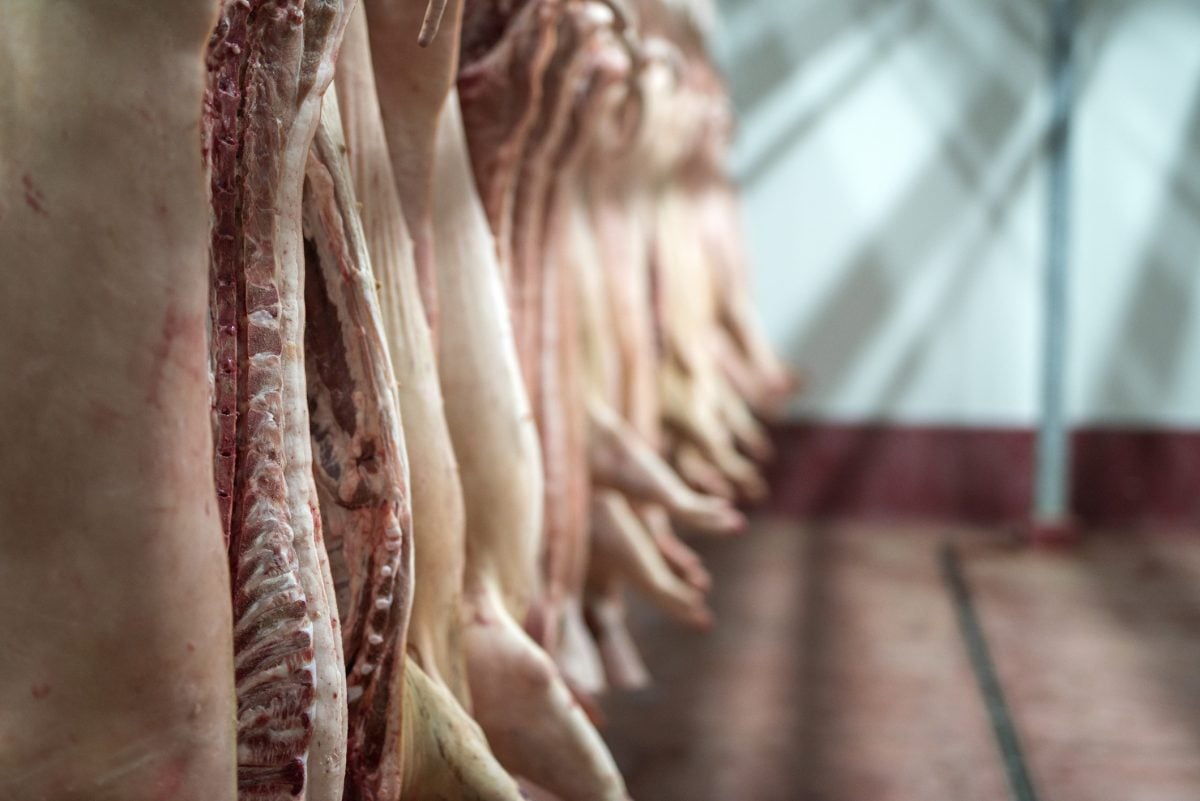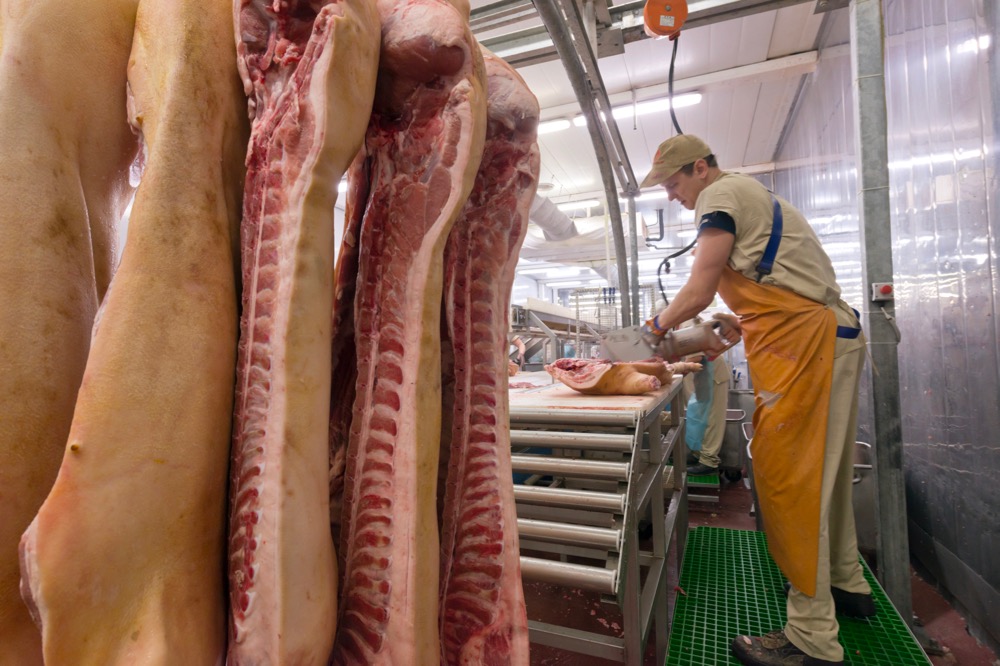Beijing | Reuters — Chinese authorities have pledged to rein in hog production and reduce soymeal use in animal feed to stabilize hog prices.
At a Wednesday meeting with major hog producers, the Ministry of Agriculture and Rural Affairs (MARA) said the country would reduce the number of breeding sows, control the slaughter weight of hogs and curb new production capacity.
Why it matters: China is a key export market for Canadian pork.
Read Also

U.S. livestock: Cattle slip back, hogs gain
Chicago cattle futures slipped back on Friday after Thursday’s pause. Hog futures crept upward. Most-active December live cattle futures closed…
The move comes as authorities ramp up efforts to address overcapacity across multiple industries – an ongoing challenge that has fuelled domestic deflation and triggered trade barriers abroad.
“The drop is driven in part by yesterday’s meeting focused on controlling hog production capacity, which is expected to limit future soymeal consumption,” said Wan Chengzhi, an analyst at Capital Jingdu Futures.
Rapeseed meal and soybean meal futures fell on Thursday following the news. Rapeseed (canola) meal is often used as a substitute for soybean meal in animal feed.
China’s hog sector continues to grapple with oversupply amid sluggish consumption demand.
Cash hog prices have hovered below 15 yuan (C$2.86) per kilogram in recent weeks, down from around 21 yuan last August, according to consultancy MySteel.
“Slaughterhouses have been actively pushing prices down, and with the current off-season in consumption, prices have continued to weaken,” said Pan Chenjun, a senior animal protein analyst at Rabobank in Hong Kong.
Data showed China’s sow herd stood at 40.43 million heads at the end of June, above the normal holding level of 39 million.
Supply is expected to remain elevated in the second half of the year, Pan said.














